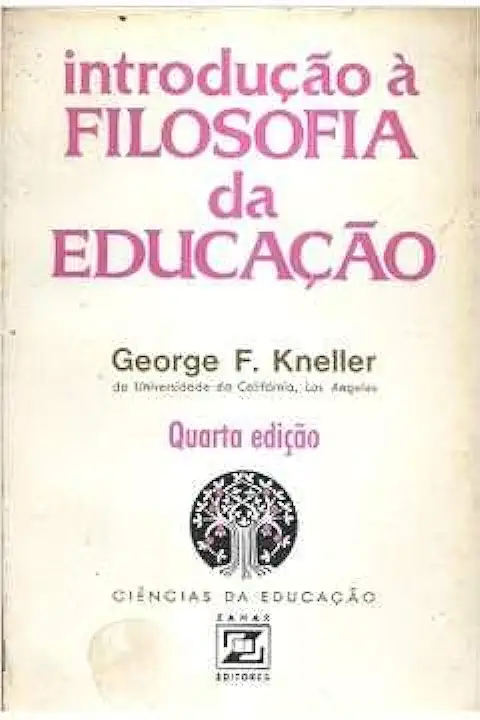
Introduction to the Philosophy of Education - George F. Kneller
Introduction to the Philosophy of Education by George F. Kneller
George F. Kneller's "Introduction to the Philosophy of Education" is a comprehensive and engaging exploration of the philosophical foundations of education. Kneller argues that education is not merely a process of transmitting knowledge, but rather a complex and multifaceted endeavor that involves the development of the whole person. He draws on a wide range of philosophical traditions, from ancient Greece to the present day, to illuminate the key issues and debates in the philosophy of education.
The Nature of Education
Kneller begins by examining the nature of education and its relationship to other fields of study. He argues that education is a unique discipline that draws on a variety of disciplines, including philosophy, psychology, sociology, and history. He also discusses the different aims of education, such as the development of intellectual skills, the cultivation of moral character, and the preparation for citizenship.
The Curriculum
Kneller then turns to the issue of the curriculum, arguing that it is not simply a list of subjects to be taught, but rather a carefully designed plan for the development of the whole person. He discusses the different types of curricula, such as the traditional liberal arts curriculum, the progressive curriculum, and the vocational curriculum. He also examines the role of the teacher in developing and implementing the curriculum.
The Learner
Kneller next focuses on the learner, arguing that education must be tailored to the individual needs and interests of each student. He discusses the different learning styles, such as the auditory learner, the visual learner, and the kinesthetic learner. He also examines the role of motivation in learning, and the importance of creating a positive learning environment.
The Teacher
Kneller then turns to the role of the teacher, arguing that teachers are not simply dispensers of knowledge, but rather facilitators of learning. He discusses the different teaching styles, such as the authoritarian teacher, the democratic teacher, and the laissez-faire teacher. He also examines the importance of teacher-student relationships, and the role of the teacher in creating a positive learning environment.
The School
Kneller concludes by examining the role of the school in society. He argues that schools are not simply places where students learn academic subjects, but rather places where they develop the skills and knowledge they need to become responsible and productive citizens. He discusses the different types of schools, such as public schools, private schools, and alternative schools. He also examines the role of the school in the community, and the importance of creating a positive school environment.
Why You Should Read This Book
"Introduction to the Philosophy of Education" is a must-read for anyone interested in the foundations of education. Kneller's comprehensive and engaging exploration of the philosophical issues in education will challenge you to think critically about the purpose and nature of education. This book is essential reading for educators, policymakers, and anyone else who cares about the future of education.
Here are a few reasons why you should read this book:
- It is a comprehensive and engaging exploration of the philosophical foundations of education.
- It draws on a wide range of philosophical traditions, from ancient Greece to the present day.
- It examines the key issues and debates in the philosophy of education, such as the nature of education, the curriculum, the learner, the teacher, and the school.
- It is written in a clear and accessible style that is easy to understand.
- It is a valuable resource for educators, policymakers, and anyone else who cares about the future of education.
Conclusion
"Introduction to the Philosophy of Education" is a thought-provoking and insightful exploration of the philosophical foundations of education. Kneller's comprehensive and engaging analysis of the key issues and debates in the philosophy of education will challenge you to think critically about the purpose and nature of education. This book is essential reading for anyone interested in the future of education.